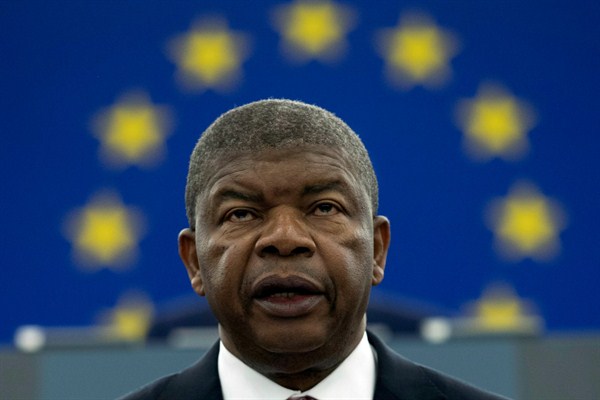Joao Lourenco marked his first anniversary as Angola’s president with his address at the United Nations General Assembly in New York late last month, promoting a “new Angola.” He was riding high, having just consolidated his power base at the party congress for his People’s Movement for the Liberation of Angola, or MPLA, in Luanda, where he stood unopposed and secured 98 percent of the votes, formally replacing Jose Eduardo dos Santos as party leader. Dos Santos’ nearly four-decade presidency came to an end last year when he didn’t stand for re-election, stepping aside in favor of his chosen successor.
At the party congress, dos Santos admitted that he had made mistakes while in office, but noticeably did not compliment Lourenco. So ends a bumpy transitional year in which there were two poles of power in Angola, with dos Santos still heading the party and Lourenco the new president. Lourenco, who announced an overhaul of the MPLA’s political bureau, is now firmly in command of the ruling party, on top of Angola’s executive branch, armed forces and intelligence services.
What does this mean for the “new Angola”? Lourenco reiterated last month that his party needed to lead the battle against rampant corruption, “even if the first to fall are militants or even senior officials of the party that have committed crimes.” Over the past year, he has overseen a purge of dos Santos’ relatives, friends and allies from key government and connected jobs. While Lourenco was in New York touting his economic reforms and the war on corruption, dos Santos’ son, Jose Filomeno dos Santos, was taken into custody in Luanda with his friend and business partner Jean Claude Bastos de Morais. The younger dos Santos is accused of trying to siphon $1.5 billion from the National Bank of Angola. He is awaiting trial in Luanda’s main prison hospital, along with other high-profile inmates, including former Transportation Minister Augusto Tomas, who also faces corruption charges.

